6 Negative Effects of Improper Waste Disposal
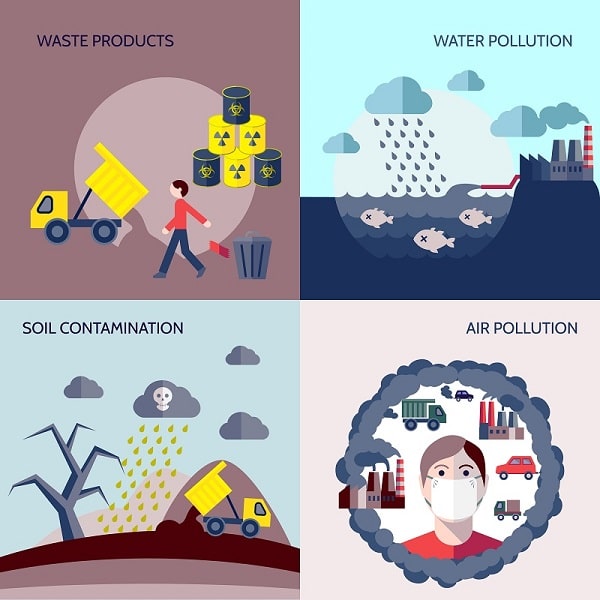
Everyone seems to be aware of the menace and effects of improper waste management, but it is quite unfortunate that not everyone is working towards making our environment a healthy one. Despite all the efforts being made, we are still far away from where we should be when it comes to keeping our planet free from harmful waste.
The negative effects of improper waste management can have a catastrophic impact on the overall economy of a country. The government has to spend a large amount of money to deal with poor waste management. The animals dependent on the environment also face life threats due to soil and water contamination.
Though the advancement of technology invented many modern waste management methods like incineration, recycling, biological processing, and energy conversion; we still live in a world filled with waste and harmful gases. Renewable energy and nuclear power took us to a newer height but on the contrary, the effects of improper waste disposal continue to damage our planet.
Most of us can claim to have read up on waste management processes. However, it should come as no surprise that despite our best efforts, the damage has continued, only at a different rate. We have come a long way in efficiently dealing with waste, yet several key problems continue to merge and injure the planet at large.
The negative effects of improper waste management not only end in a disgusting view but also affect the overall economy of a country. The state has to spend a lot of money to counter the effects of improper waste management. Moreover, animals dependent on the environment also face a great threat due to the oil spills and leaching of chemicals which directly cause soil and water contamination. Burning of any disposed waste and plastic materials results in air and environmental pollution.
Watch the following video to see how a small amount of poorly managed plastic waste can have a very large impact on our ecosystem.
Some negative effects of poor waste management are listed below:
- Soil Contamination
- Water Contamination
- Severe Change in Weather Condition
- Air Pollution
- Harm Towards Animal and Marine Life
- Human Health Disaster
1. Soil Contamination due to Improper Waste Disposal
Plastics, metals, glass, and paper are a big part of our world that we just can’t do without. Although we have been able to keep wastes associated with any of these under control by proper recycling methods. But are these recycling methods effective enough to keep the environment healthy? Of course not!
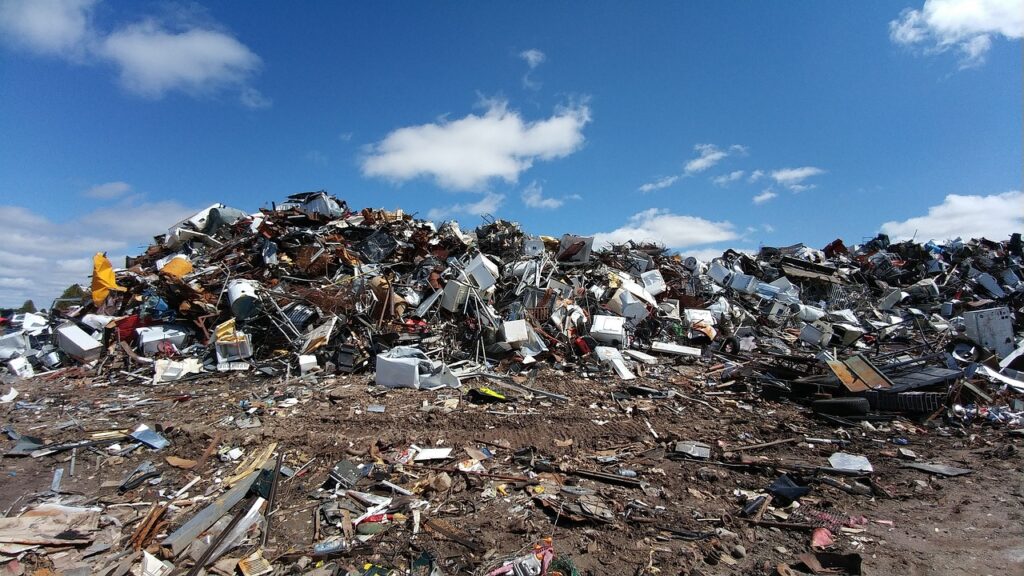
Just a spill into the soil could cause serious contamination which could further decompose into harmful substances such as DIETHYLHYDROXYLAMINE (DEHA) a harmful substance that accumulates in plants and causes liver and reproductive dysfunction when ingested by animals.
Ideally, we would like our plastic, glass, metal, and paper waste to end up at a recycling facility. It then returns to us as a renewable product. But the reality is entirely different. Have a look at the informative image below.
Contamination occurs by spilling and burying hazardous components in soil. So, we need to be watchful of how we process petroleum hydrocarbons, solvents, pesticides, heavy metals, and lead.
For example, here’s what happens when a plastic water bottle is incorrectly sent to a landfill, or left, at any other place, to be absorbed by the soil:
- Plastic water bottles eventually break down to release a harmful component called, DIETHYLHYDROXYLAMINE (DEHA). (A carcinogen that hurts our reproductive capabilities, and causes liver dysfunction and weight loss issues.)
- DEHA seeps into the surrounding areas of the soil and water bodies to harm the animal and plant life depending on it.
2. Water Contamination due to the Massive Waste Dump in the Water
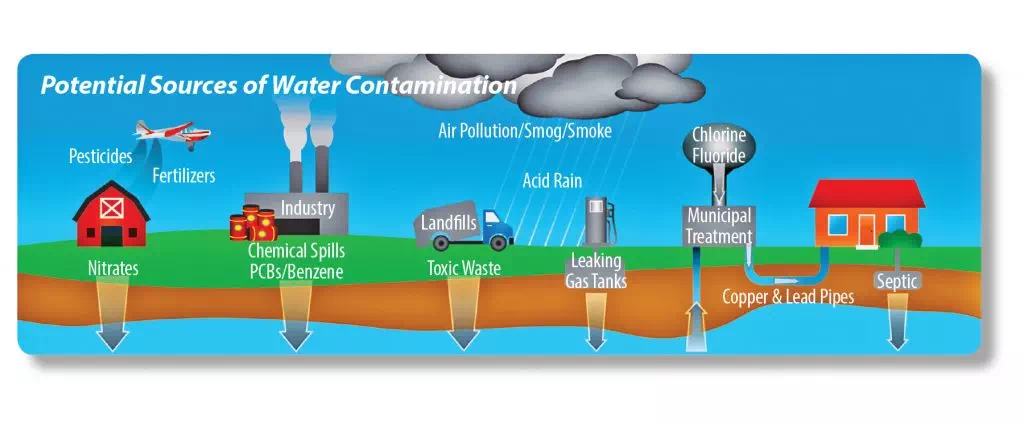
Water is a universal solvent, it gets contaminated easily because it can solve both gas, liquid and solid wastes that are harmful. More so, water bodies are usually linked to each other. When rainwater is contaminated, it flows into other water bodies and underground water contaminating them in the process.
Rainfall easily mixes with toxic liquid substances and seeps into the water streams to end up in nearby water bodies. Thus, the neighbourhood fountain, pond, lake or even drinking water taps are susceptible to the dangers of contamination.
The victims? All living organisms including us, humans.
3. Severe Weather Conditions due to Climate Change
Climate change and global warming have been a major problem facing the world since the beginning of the twentieth century and this has been a result of improper disposal of waste. If you are not aware of this, then you are not in line with the world.
This poor waste disposal causes severe weather conditions such as heavy storms, typhoons, and irregular climate change. In turn, this affects our general livelihood as humans and also causes different kinds of radioactive pollution.
Firstly, harmful greenhouse gases are created from decomposing waste. These rise up to the atmosphere and trap heat. This adversely causes extreme weather reactions in the form of storms and typhoons.
How else are we impacted? Well, apart from temperature what is also drastically affected is the level of precipitation in the air. From acid rain to severe hail storms or global warming – everything is fair game at present. This also spreads out into other areas with regard to subdivisions such as thermal and radioactive pollution.
Check out the 2021 Global Climate Report on active pollution.
4. Air Contamination due to Harmful Gases
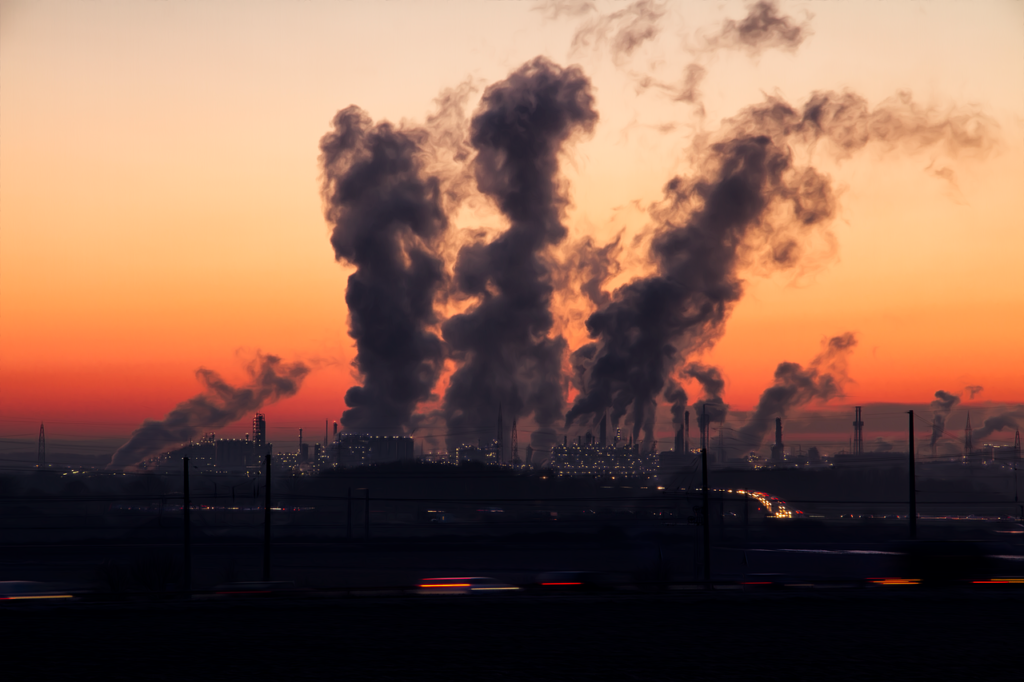
The atmosphere is the soul of the earth. Getting it polluted with harmful substances which we often do kills the soul of the earth gradually. This pollution can either be from landfills, the burning of gas, or the release of harmful chemicals into the atmosphere. These pollutants destroy the ozone layer which protects the earth from excess UV rays and exposes animate things to unfavorable weather conditions.
Poor waste disposal also causes the release of harmful substances such as carbon monoxide which inhibits the function of haemoglobin in the body of humans.
On occasion paper and plastic are burned at the landfill, causing landfill gas, the chemicals released which accumulate and contribute to the ozone layer and also hurt the surrounding human population. Methane gas adds to it as well. Besides, with chemicals such as dioxin out there, the air has been proven to have harmful effects on us.
All of it, and especially when improper waste management is concerned, plays a significant role in causing global warming.
5. Animal and Marine Life Damage
This is one of the major negative effects of improper waste management because it directly affects animals and marine life. People are fond of polluting the environment by dumping garbage in unauthorized areas continuously. In turn, this is carried by water into water bodies, blocking channels and hurting aquatic life. Massive consumption of fishing lines, plastic bottles, and cigarette butts kills millions of marine lives each year.
Despite strict measures to stop it, we keep seeing the continual dumping of garbage, and raw or untreated sewage. Any animal or marine life coming in contact gets impacted in the worst of ways. The inevitable formation of algal blooms and clusters contaminates and eventually suffocates marine life such as coral and fish.
As discussed comprehensively by Conservation International, we have seen how the consumption of fishing lines, cigarette butts, plastic bottles and Styrofoam can kill millions of marine lives each year.
Furthermore, it is a vicious cycle that feeds itself:
- Waste is dumped into the ground
- Absorbed by the soil and groundwater
- Waste contaminates the land on which we grow food and provides water for us and animals
- Waste in the marine life kills fish
- Carcasses float on the surface, and we see mosquitoes feed on it
- The diseases carrying mosquitoes now spread sickness and death among the living population
6. Human Health Disaster
Improper waste disposal is one of the major public health concerns. There are many cities and communities where we do not see any proper waste management system available. Those areas may have some waste disposal facilities, but they do not use any scientific waste management system. People living in those areas are at significant health risk. The most affected people are children, waste disposal workers and employees who come into contact with waste materials.
Those who are at significant risk are:
- Children and those who live near such facilities
- Waste disposal workers
- Employees whose workplaces manufacture or come into contact with waste materials
Think about the fires at landfills and their effects on us. Whether coming from the air or its accumulation in our cellars, those landfill gases have been exposed for causing cancer, creating respiratory and visibility problems, and the explosion of cans put people nearby at constant risk.
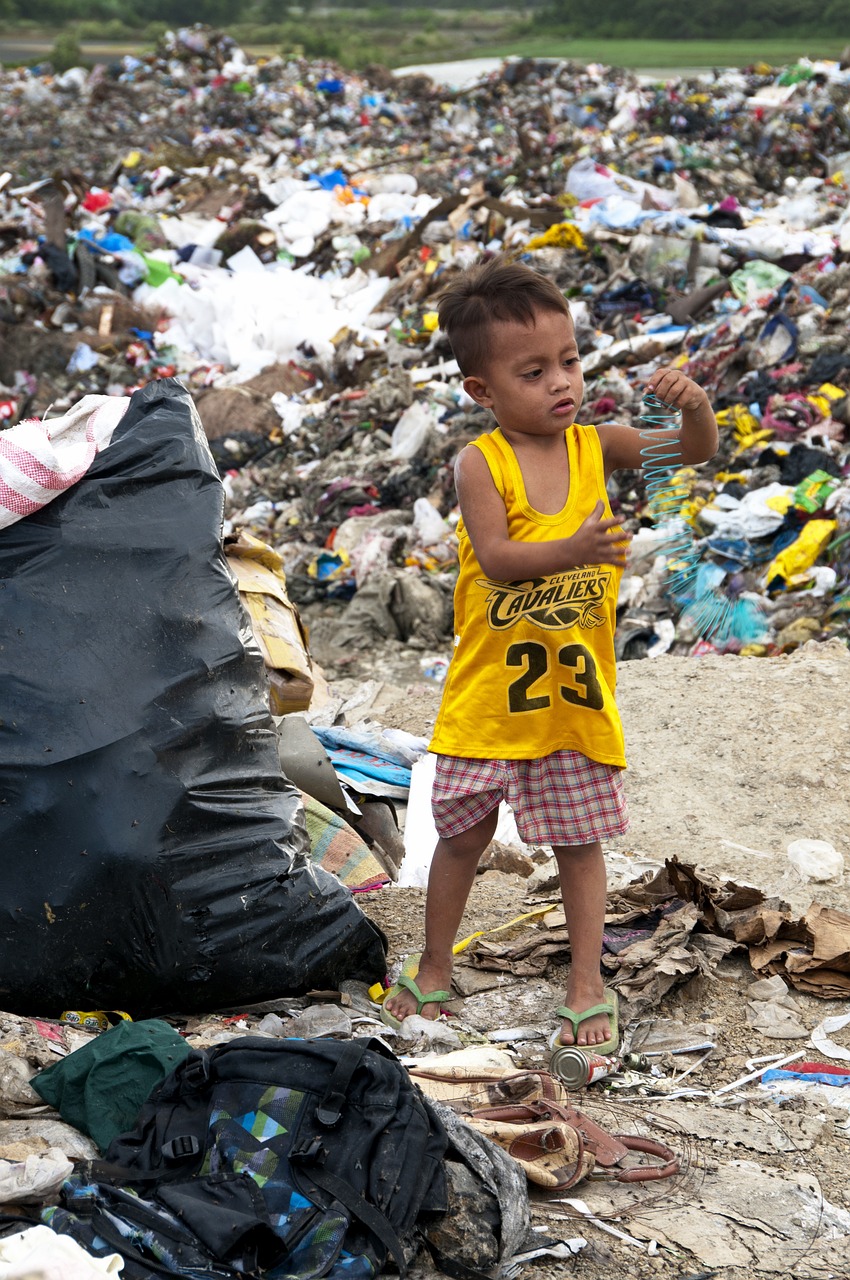
Poorly managed landfills often cause fires and spread smoke filled with toxins, and other harmful gases. Those harmful gases are the main reason for cancer and respiratory and visibility problems. There are many examples of explosions in landfills; such explosions can put people nearby at constant risk.
Additionally, when people come in contact with waste, it causes blood infections and skin irritation. Also, flies and mosquitoes find tires, cans, and other solid waste to be an ideal breeding ground. They carry and spread malaria, dengue, and other diseases.
Despite the continuous effort from the world’s environmental organizations, world leaders, and the United Nations, we continue to plague our planet with improper waste mismanagement and giving very little importance to the environmental effects resulting in severe climate change and global warming. There is no escape from it, we all must admit it and work together for the betterment of our environment. Or we must face the wrath of nature and the consequences of damaging the ecosystem of our planet.
Waste Management is our responsibility therefore we should all play our role to keep our environment and planet sustainable a little longer as we all benefit from it as long as life continues to inhabit the planet earth. Education, awareness, and effective measures must be taken irrespective of their social-economic condition.
Additionally, when we come in contact with waste, it causes skin irritation and blood infections. We also contract diseases from flies which are carriers of illnesses after breeding on solid waste. With regards to mosquitoes, we know, that besides feeding on dead fish, they find sewage, rainwater, tires, cans, and other objects to be ideal breeding grounds. They carry and spread diseases such as malaria and dengue.
With an abundance of disease-carrying pests, it becomes difficult to be vigilant about waste management facilities. Despite all efforts, for example, rats continue their massive infestation on such facilities and sewage systems. They harm crops and spread diseases such as Hantavirus Pulmonary Syndrome, Leptospirosis, Rat-bite Fever, and Salmonellosis.
Waste management is our responsibility for we benefit and suffer from it in radical ways. Education and awareness across all communities, irrespective of their social, and economic condition, must be ever-present for as long as life inhabits this planet. A butterfly fluttering its wings 900 miles away from you can cause a hurricane right where you live.
Therefore, significant mismanagement of waste by Turkey and Chile, where only 1% of waste was reported to be recycled, can contribute to global warming. Even if you live far away in Greenland, there is no escape. We must all play a role.
Wow, this article is pleasant, my younger sister is analyzing these kinds of things, so I am going to tell her.
Incredible points. Sound arguments. Keep up the great work.